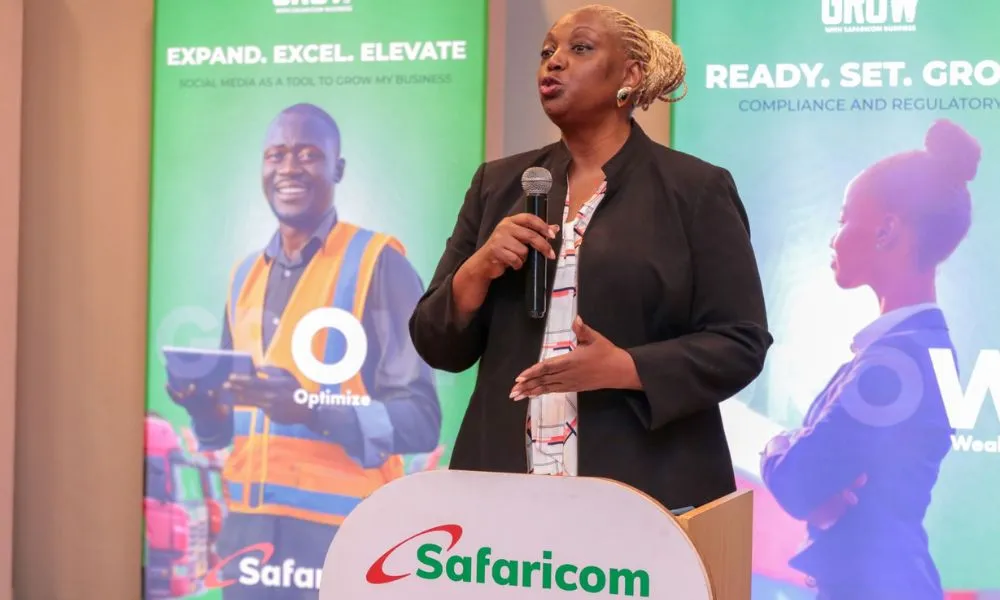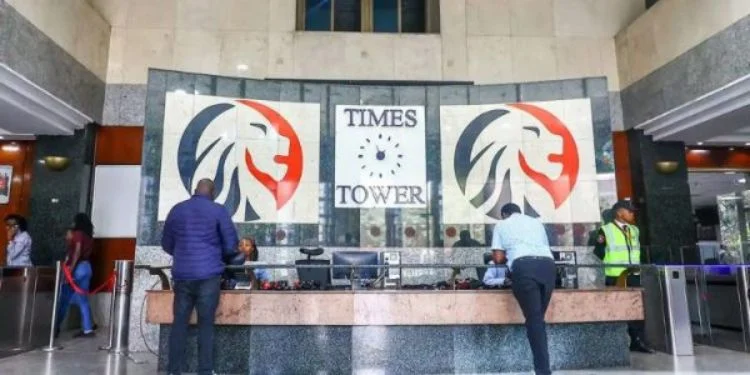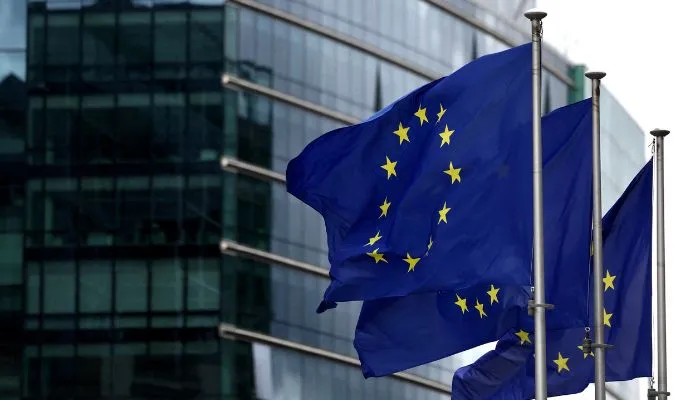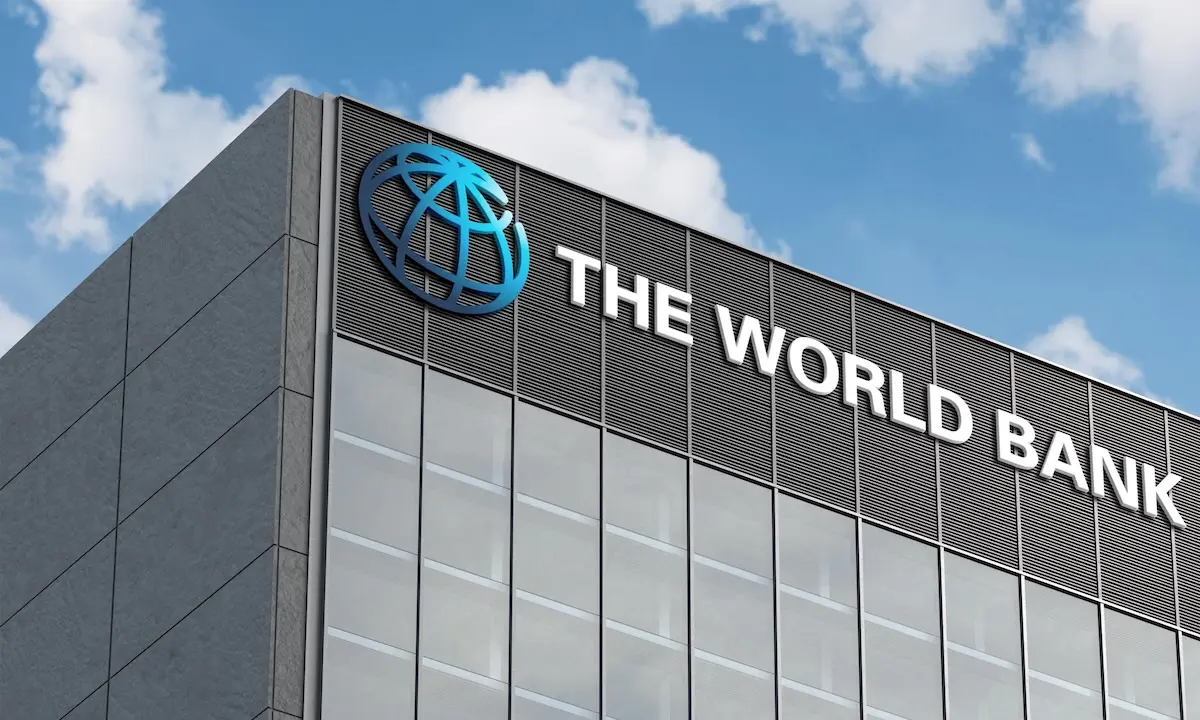Telecommunications giant Safaricom has announced a strategic pivot towards supporting micro, small and medium enterprises (MSMEs) as part of its ambitious plan to increase its contribution to Kenya’s gross domestic product (GDP) beyond eight percent. This shift represents a significant evolution for the company, which has transformed from a traditional telecommunications business into a comprehensive technology platform that now contributes approximately Sh1.21 trillion to Kenya’s economy.
Build the future you deserve. Get started with our top-tier Online courses: ACCA, HESI A2, ATI TEAS 7, HESI EXIT, NCLEX-RN, NCLEX-PN, and Financial Literacy. Let Serrari Ed guide your path to success. Enroll today.
The MSME Landscape in Kenya
MSMEs form the backbone of Kenya’s economy, making substantial contributions that cannot be overlooked. These enterprises contribute around 40 percent of the GDP and employ a significant portion of the workforce (about 80%). According to the World Bank, globally MSMEs account for 90% of businesses and 60-70% of employment. The classification system divides these businesses into distinct categories based on their employee count and operational scale.
Micro-enterprises, defined as businesses with fewer than 10 employees, represent the majority of enterprises in Kenya and are predominantly at the foundation stage of their development. Small enterprises employ between 10-49 people and are typically in their growth phase, while medium enterprises have 50-100 employees. Large establishments, with more than 100 staff members, often employ thousands and represent the mature end of the business spectrum.
However, the journey from micro to large enterprise is fraught with challenges. It’s estimated that around 400,000 micro, small, and medium enterprises do not make it past their second year, primarily due to high operating costs, declining income, lack of market access, and poor infrastructure. This high failure rate underscores the critical need for comprehensive support systems that can help these businesses navigate their early years and achieve sustainable growth.
Safaricom’s Strategic Evolution
The timing of Safaricom’s renewed focus on MSMEs coincides with the completion of its five-year strategic cycle, which successfully transformed the company from a telecommunications business into a comprehensive technology company. This transformation was achieved through accelerated technology adoption and a greater focus on digitizing both Kenya and Ethiopia.
Franklin Okata, Safaricom’s acting chief enterprise business officer, emphasized the strategic importance of this shift during a media immersion at the Michael Joseph Centre in Nairobi. “Kenya’s economy is growing and who moves it? Basically, the SMEs. That is why it is very important for us at Safaricom to invest in supporting them. That is where we are giving a lot of our focus,” he explained.
Okata further clarified that while large enterprises remain important to Safaricom’s business strategy, the company recognizes that every large enterprise was once a small business. “It is not that we are not focusing on large enterprises…they are very important but for every large you see today, a few years ago, they were medium and 10 years ago, they were small, right and many years ago, it was just an idea. So we are really focusing on the small businesses with numerous challenges,” he added.
Comprehensive Digital Solutions for MSMEs
Safaricom’s approach to supporting MSMEs extends far beyond traditional telecommunications services. The company has built a suite of tools designed specifically for MSMEs, enabling them to access everything from internet connectivity and cloud services to digital payments and working capital loans. This comprehensive ecosystem addresses multiple pain points that typically hinder MSME growth and sustainability.
The digital infrastructure includes Domain & Email Hosting services, Cybersecurity Solutions, and various connectivity options such as 4G Business Routers, 5G Fixed Wireless, and Business Fibre. These services ensure that MSMEs can remain competitive in an increasingly digital-first economy where online presence and reliable connectivity have become essential for business survival and growth.
Revolutionary Credit Solutions
One of Safaricom’s most significant contributions to MSME development has been the introduction of innovative credit solutions that bypass traditional banking barriers. The company has unveiled improved credit solutions through Fuliza Biashara and Taasi Till, offering short-term credit ranging from Kshs 1,500 to Kshs 250,000 for Taasi Till, and overdraft facilities from Kshs 1,000 to Kshs 400,000 for Fuliza Biashara.
These solutions represent a paradigm shift in how small businesses access capital. Traditional bank loans often require extensive paperwork, collateral, and lengthy approval processes that many MSMEs cannot afford or navigate. Safaricom’s mobile-based lending platform eliminates these barriers by leveraging M-PESA transaction data to assess creditworthiness and provide instant access to funds directly to business tills.
The flexibility of repayment is particularly noteworthy, with overdrafts being recovered when there’s inflow to the till, allowing for business continuity. This approach recognizes the cash flow challenges that many small businesses face and provides a solution that works with, rather than against, their operational realities.
The Grow with Safaricom Business Initiative
Understanding that access to capital alone is insufficient for sustainable business growth, Safaricom launched the “Grow with Safaricom Business” initiative in March 2024. This platform has so far engaged over 1,120 businesses across the Rift region, Coast, Nairobi, Western and Mt. Kenya regions, providing entrepreneurs with knowledge and skills that can help them sustainably accelerate their growth.
The workshops create space for peer learning, business networking, and exposure to best practices in digital transformation, covering practical skills in digitization, regulatory compliance, digital marketing, and brand building. This holistic approach recognizes that successful business development requires more than just financial resources – it requires knowledge, skills, and networks that can help entrepreneurs make informed decisions and avoid common pitfalls.
Ready to level up your career? Join our expert-led Online courses in ACCA, HESI A2, ATI TEAS 7, HESI EXIT, NCLEX-RN, NCLEX-PN, and Financial Literacy. At Serrari Ed, we turn potential into achievement. Start your journey today!
M-PESA: The Financial Backbone
Central to Safaricom’s MSME strategy is M-PESA, which has evolved far beyond its original money transfer function to become a comprehensive financial ecosystem. M-PESA celebrated its 18th anniversary in 2025 and has grown into one of the world’s most successful mobile money platforms, driving formal financial inclusion in Kenya from just 19% in 2006 to 84.8% in 2024.
The platform’s impressive scale is evident in its operational metrics: it now supports over 35 million active customers, handles 4,500 transactions per second, and contributes over 8% to Kenya’s GDP. For the financial year ended March 2025, M-PESA transactions hit Sh38.3 trillion, up from Sh37.7 trillion the previous year, demonstrating continued growth and adoption.
In the year ending March 2025, M-PESA handled approximately 37.2 billion transactions, valued at roughly Ksh 38.3 trillion, representing a 1.6 percent increase in value but a striking 29.5 percent jump in volume. This data indicates that while individual transaction values may be smaller, significantly more people are using the platform, suggesting broader financial inclusion and more frequent use of digital financial services.
Economic Impact and GDP Contribution
Safaricom’s contribution to Kenya’s economy extends well beyond direct revenue generation. The firm has cemented its position as a major driver of Kenya’s economy, with its annual contribution to the GDP now at about Sh1.21 trillion, both economic and social value, of the country’s GDP estimated at Sh15.11 trillion.
This contribution manifests in multiple forms, including job creation, value chain opportunities for other businesses, taxes, and dividends to shareholders. The company’s operations have a multiplier effect throughout the economy, supporting suppliers, contractors, agents, and countless informal businesses that depend on the digital infrastructure and services Safaricom provides.
The historical trajectory of Safaricom’s economic contribution is impressive. In 2020, Safaricom added Sh654 billion to the Kenyan economy, equivalent to six percent of Kenya’s GDP, representing a nine percent increase from Sh601 billion the previous year. The consistent growth in economic contribution demonstrates the company’s expanding role in Kenya’s development story.
Kenya’s Economic Context and Growth Targets
Kenya’s economic landscape provides important context for Safaricom’s MSME strategy. The country’s GDP growth decelerated to an estimated 4.5% in 2024, following a cyclical rebound of 5.6% growth in 2023, amid various challenges including liquidity constraints, inflationary pressures, and climate change impacts.
Kenya’s growth is projected to recover to 4.9% on average during 2025–2027, driven mainly by easing inflation, accommodative monetary policy, and a pickup in credit growth. However, Kenya’s GDP growth averaged 4.6% between 2019 and 2023, lower than its 10% target in Vision 2030, highlighting the need for innovative approaches to accelerate economic growth.
The role of structural transformation in achieving higher growth rates cannot be overstated. Output growth of 5.8% a year is needed to absorb the 680,000 people entering the labor market, and with accelerated structural transformation, GDP growth of 7.3% could create 1.36 million new jobs and cut unemployment to 7%.
Challenges and Opportunities in the MSME Sector
Despite their significant contribution to the economy, MSMEs in Kenya face numerous challenges that limit their growth potential. Globally, MSMEs account for 90% of businesses, 60 to 70% of employment and 50% of GDP, according to the World Bank, yet many struggle to access the resources and support they need to thrive.
The informal nature of many MSMEs presents both challenges and opportunities. While informality can limit access to formal financial services and markets, it also represents significant potential for formalization and growth. Safaricom’s digital platforms provide a bridge between the informal and formal economies, enabling businesses to access services and build transaction histories that can support their growth trajectories.
Financial inclusion remains a critical challenge, despite significant progress. Safaricom helped drive the country’s formal financial inclusion to 84.8 percent in 2024 from 19 percent in 2006-2007, but gaps remain, particularly in rural areas and among certain demographic groups.
The Path Forward: Digitization and Innovation
Looking ahead, Safaricom’s strategy recognizes that successful MSME development requires a multi-faceted approach combining financial inclusion, digital infrastructure, capacity building, and market access. The company wants to be more than a service provider; it wants to be a trusted growth partner for Kenya’s small businesses.
The integration of various services through Safaricom’s ecosystem creates synergies that benefit MSMEs. For example, a small retailer can use M-PESA for payments, access working capital through mobile lending, build an online presence through digital marketing tools, and ensure business continuity through cybersecurity solutions – all within a single, integrated platform.
Innovation continues to drive new solutions. The company’s research and development efforts focus on understanding MSME needs and developing targeted solutions. Safaricom and FSD Kenya conducted a comprehensive study that segmented businesses into five distinct categories, considering both owner demographics and firmographics to develop targeted financial and business solutions.
Conclusion: Building a Stronger Economic Foundation
Safaricom’s strategic focus on MSMEs represents more than just a business decision – it’s an investment in Kenya’s economic future. By supporting the growth of micro-enterprises into sustainable small and medium businesses, the company is helping to build a more resilient and diversified economic foundation.
The ambitious target of contributing beyond 8% to Kenya’s GDP reflects both confidence in the MSME sector’s potential and recognition of the role that digital technology can play in unlocking this potential. As Kenya works towards its Vision 2030 development goals, partnerships between technology companies like Safaricom and the MSME sector will be crucial for achieving inclusive and sustainable economic growth.
The success of this strategy will ultimately be measured not just in financial returns, but in the number of businesses that successfully transition from survival to growth mode, the jobs created, and the broader economic opportunities generated. If successful, Safaricom’s MSME-focused approach could serve as a model for how technology companies can drive inclusive economic development across Africa and beyond.
Ready to take your career to the next level? Join our Online courses: ACCA, HESI A2, ATI TEAS 7 , HESI EXIT , NCLEX – RN and NCLEX – PN, Financial Literacy!🌟 Dive into a world of opportunities and empower yourself for success. Explore more at Serrari Ed and start your exciting journey today! ✨
Track GDP, Inflation and Central Bank rates for top African markets with Serrari’s comparator tool.
See today’s Treasury bonds and Money market funds movement across financial service providers in Kenya, using Serrari’s comparator tools.
photo source: Google
By: Montel Kamau
Serrari Financial Analyst
28th August, 2025
Article, Financial and News Disclaimer
The Value of a Financial Advisor
While this article offers valuable insights, it is essential to recognize that personal finance can be highly complex and unique to each individual. A financial advisor provides professional expertise and personalized guidance to help you make well-informed decisions tailored to your specific circumstances and goals.
Beyond offering knowledge, a financial advisor serves as a trusted partner to help you stay disciplined, avoid common pitfalls, and remain focused on your long-term objectives. Their perspective and experience can complement your own efforts, enhancing your financial well-being and ensuring a more confident approach to managing your finances.
Disclaimer: This article is for informational purposes only and does not constitute financial advice. Readers are encouraged to consult a licensed financial advisor to obtain guidance specific to their financial situation.
Article and News Disclaimer
The information provided on www.serrarigroup.com is for general informational purposes only. While we strive to keep the information up to date and accurate, we make no representations or warranties of any kind, express or implied, about the completeness, accuracy, reliability, suitability, or availability with respect to the website or the information, products, services, or related graphics contained on the website for any purpose. Any reliance you place on such information is therefore strictly at your own risk.
www.serrarigroup.com is not responsible for any errors or omissions, or for the results obtained from the use of this information. All information on the website is provided on an as-is basis, with no guarantee of completeness, accuracy, timeliness, or of the results obtained from the use of this information, and without warranty of any kind, express or implied, including but not limited to warranties of performance, merchantability, and fitness for a particular purpose.
In no event will www.serrarigroup.com be liable to you or anyone else for any decision made or action taken in reliance on the information provided on the website or for any consequential, special, or similar damages, even if advised of the possibility of such damages.
The articles, news, and information presented on www.serrarigroup.com reflect the opinions of the respective authors and contributors and do not necessarily represent the views of the website or its management. Any views or opinions expressed are solely those of the individual authors and do not represent the website's views or opinions as a whole.
The content on www.serrarigroup.com may include links to external websites, which are provided for convenience and informational purposes only. We have no control over the nature, content, and availability of those sites. The inclusion of any links does not necessarily imply a recommendation or endorsement of the views expressed within them.
Every effort is made to keep the website up and running smoothly. However, www.serrarigroup.com takes no responsibility for, and will not be liable for, the website being temporarily unavailable due to technical issues beyond our control.
Please note that laws, regulations, and information can change rapidly, and we advise you to conduct further research and seek professional advice when necessary.
By using www.serrarigroup.com, you agree to this disclaimer and its terms. If you do not agree with this disclaimer, please do not use the website.
www.serrarigroup.com, reserves the right to update, modify, or remove any part of this disclaimer without prior notice. It is your responsibility to review this disclaimer periodically for changes.
Serrari Group 2025
















